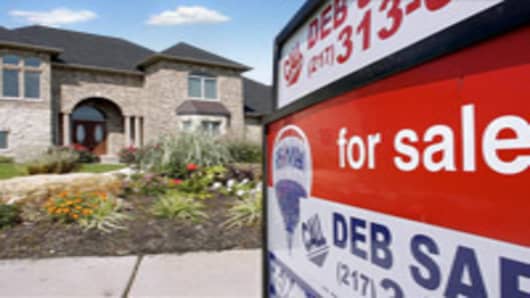"Wow, that was quick. Ahead of today's 2nd day of the FOMC meeting, the MBA said both applications for refi's and purchases are now below the levels of mid Sept when the Fed decided to further help the housing market with more QE," writes analyst Peter Boockvar of Miller Tabak. "The costs of an eventual Fed exit will far outweigh any benefits."
Why are mortgage rates rising again? Because even though the ten-year Treasury yield, which mortgage rates generally track, is above where it was before the Fed's announcement of QE2, the greater demand by the Fed for MBS is being met by plenty of supply in the form of big refinance volume. The banks are not passing through the discounts they are getting to consumers due to tighter lending standards and rising fees.
(Read More: Is There a Housing Shortage?)
Tighter credit is particularly hard on first-time home buyers, who might not have strong credit scores or large down payments; this cohort usually makes up 45 percent of the overall home buying market but today are down at just 32 percent according to the National Association of Realtors.
"It's that first time home buyer we have to be mindful of and make sure that the rules and the credit parameters don't restrict the buyer that doesn't have equity available in a prior home to move up or the assets in the bank yet," adds Still.
(Read More: Property Flippers Are Back as Housing's New Middle Men)
As we head into the historically slower months for the housing market, mortgage rates will likely play an outsized role, as today's buyers are far more sensitive to the slightest rate moves. True, sales for the builders are up 42 percent from the trough at the beginning of 2011, but 72 percent below the latest peak, according to Boockvar. The door is open for the builders, as long as the bankers don't slam it shut.
Click on ticker to follow real estate news:
US Home Builders
Questions? Comments? RealtyCheck@cnbc.com And follow me on Twitter @Diana_Olick



